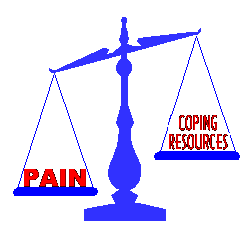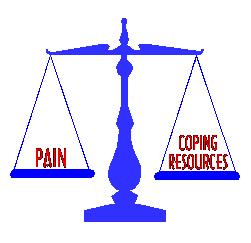 Mega Churches Breed Apathy? Or just a place to hide?
Mega Churches Breed Apathy? Or just a place to hide?
Then, they were asking for the 5th week in a row for volunteers for the kids' Sunday school and nursery. Our pastor made an additional plea. You are supposed to volunteer 1 weekend a month if you use the nursery. Obviously people aren't, because out of a 8,000 person congregation, they do not have enough volunteers.
If you go to a big (mega) church, is it because they offer a wide variety of projects, or because you can hide? Does it breed apathy because you assume that "someone else will do it"?
If someone else is always going to do it, then who will? My guess is that the people who are the most active in our church are those who would be the most active no matter what congregation they belonged to, whether it was 200 or 2000 or 20,000.
The two main reasons why I started going to the church I do was:
1) the pastor was particularly engaging
2) I could go in and get lost in the crowd on Sunday and leave. I was fairly new to attending church again (did the usual drop out in late-teens, early 20s) and didn't WANT to be noticed.
Now, things have changed and I feel I'm outgrowing those reasons. Don't get me wrong, the Pastor is one of the best I've ever heard, but how many people do we lose between the cracks?
When you're in a small congregation, people notice when you've been gone a month. Of course, we're supposed to belong to one or more small groups but since there are 5 services you can attend with 1000-2000 people in each one - how would they know if I was there or not unless we discussed attendance in small group? I rarely see anyone from my small groups at a service.
As I looked around and realized I was in the heart of Leawood, that maybe it was the affluence of the group that breeded apathy, much more than the size of our church. I believe that most Americans are apathetic and unwilling to personally risk their comfort to help others or make this a better society.
I have mentioned before that several trips to our sister church in Hondorous had to be canceled because of lack of volunteers. I would LOVE to go, but do not have the $1800 it requires. On the same note, I did not donate even $20 to sponsor someone else. Shame on me. If everyone on the rolls donated $20 (most probably spend more than that on a week's worth of Starbucks), just think what we could do for that mission. I just did the math - it would be enough money to spend approximately 130-135 volunteers for the next year.
Then I thought of another kind of apathy I believe that runs in our church, apathy towards the message. Sometimes I get the feeling as long as we go in there and get a "good sermon" that doesn't deal with anything too painful or shocking or mind-bending, it's ok.
It's ok to talk about Jesus' messages of love, but let's not touch the UMC position on abortion for example. We can talk about how to be a better person, but the one sermon we had on homosexuality caused quite the uproar. Why is that a bad thing? Why not preach a sermon that causes people to squirm a bit and rethink for themselves what their stance on something is?
I truly believe that a change in the individual life marks a Christian, not any church, however well attended. So, if people are not stepping up to volunteer or to be challenged in their faith, why are they there? Why are they content to sit back and let others do the "works" of the Christian faith?
If you asked many of the member of any church, I'm sure they would cite poverty, hunger, genocide, etc as concerns - but how many look for ways within their own community to fight those issues? One of the reasons I continue to go to my church, is that because of the mass, we are able to accomplish a lot of things in the community that smaller churches are not. But I wonder what percentage of our congregation actually participates? Or is it the same people volunteering each month? (the 80/20 rule maybe?)
If we can't even get parents to volunteer in their own kids' class, then as a group of Christians, how are we supposed to pool resources and fight many of the social ills of today? There is no place for apathy in a world which sees 20,000 or more children die each day because of poverty related conditions.
But this could be just the view from my seat.....
 Shameless copy/paste regarding Suicide
Shameless copy/paste regarding Suicide
Suicide is not chosen;
it happens when pain exceeds resources for coping with pain.
That's all it's about.
You are not a bad person, or crazy, or weak, or flawed, because you feel suicidal.
It doesn't even mean that you really want to die - it only means that you have more pain than you can cope with right now.
If I start piling weights on your shoulders, you will eventually collapse if I add enough weights... no matter how much you want to remain standing. Willpower has nothing to do with it. Of course you would cheer yourself up, if you could.

Don't accept it if someone tells you, that�' not enough to be suicidal about. There are many kinds of pain that may lead to suicide. Whether or not the pain is bearable may differ from person to person. What might be bearable to someone else, may not be bearable to you. The point at which the pain becomes unbearable depends on what kinds of coping resources you have. Individuals vary greatly in their capacity to withstand pain.
When pain exceeds pain-coping resources, suicidal feelings are the result. Suicide is neither wrong nor right; it is not a defect of character; it is morally neutral. It is simply an imbalance of pain versus coping resources.
You can survive suicidal feelings if you do either of two things: (1) find a way to reduce your pain, or (2) find a way to increase your coping resources. Both are possible.
Now I want to tell you five things to think about.
| 1 | You need to hear that people do get through this -- even people who feel as badly as you are feeling now. Statistically, there is a very good chance that you are going to live. I hope that this information gives you some sense of hope. |
| 2 | Give yourself some distance. Say to yourself, �I will wait 24 hours before I do anything.� Or a week. Remember that feelings and actions are two different things - just because you feel like killing yourself, doesn't mean that you have to actually do it right this minute. Put some distance between your suicidal feelings and suicidal action. Even if it�s just 24 hours. You have already done it for 5 minutes, just by reading this page. You can do it for another 5 minutes by continuing to read this page. Keep going, and realize that while you still feel suicidal, you are not, at this moment, acting on it. That is very encouraging to me, and I hope it is to you. |
| 3 | People often turn to suicide because they are seeking relief from pain. Remember that relief is a feeling. And you have to be alive to feel it. You will not feel the relief you so desperately seek, if you are dead. |
| 4 | Some people will react badly to your suicidal feelings, either because they are frightened, or angry; they may actually increase your pain instead of helping you, despite their intentions, by saying or doing thoughtless things. You have to understand that their bad reactions are about their fears, not about you. But there are people out there who can be with you in this horrible time, and will not judge you, or argue with you, or send you to a hospital, or try to talk you out of how badly you feel. They will simply care for you. Find one of them. Now. Use your 24 hours, or your week, and tell someone what�s going on with you. It is okay to ask for help. Try:
But don�t give yourself the additional burden of trying to deal with this alone. Just talking about how you got to where you are, releases an awful lot of the pressure, and it might be just the additional coping resource you need to regain your balance. |
| 5 | Suicidal feelings are, in and of themselves, traumatic. After they subside, you need to continue caring for yourself. Therapy is a really good idea. So are the various self-help groups available both in your community and on the Internet. |
Well, it�s been a few minutes and you're still with me. I'm really glad.
Since you have made it this far, you deserve a reward. I think you should reward yourself by giving yourself a gift. The gift you will give yourself is a coping resource. Remember, back up near the top of the page, I said that the idea is to make sure you have more coping resources than you have pain. So let's give you another coping resource, or two, or ten...! until they outnumber your sources of pain.

Now, while this page may have given you some small relief, the best coping resource we can give you is another human being to talk with. If you find someone who wants to listen, and tell them how you are feeling and how you got to this point, you will have increased your coping resources by one. Hopefully the first person you choose won't be the last. There are a lot of people out there who really want to hear from you. It�s time to start looking around for one of them.
Now: I'd like you to call someone.
And while you're at it, you can still stay with me for a bit. Check out these sources of online help.
Additional things to read at this site:
How serious is our condition? ...�he only took 15 pills, he wasn't really serious...� if others are making you feel like you�re just trying to get attention... read this.
Why is it so hard for us to recover from being suicidal? ...while most suicidal people recover and go on, others struggle with suicidal thoughts and feelings for months or even years. Suicide and post-traumatic stress disorder (PTSD).
Recovery from grief and loss ...has anyone significant in your life recently died? You would be in good company... many suicidal people have recently suffered a loss.
The stigma of suicide that prevents suicidal people from recovering: we are not only fighting our own pain, but the pain that others inflict on us... and that we ourselves add to. Stigma is a huge complicating factor in suicidal feelings.
Resources about depression ...if you are suicidal, you are most likely experiencing some form of depression. This is good news, because depression can be treated, helping you feel better.
Do you know someone who is suicidal... or would you like to be able to help, if the situation arises? Learn what to do, so that you can make the situation better, not worse.
Handling a call from a suicidal person ...a very helpful ten-point list that you can print out and keep near your phone or computer.
What can I do to help someone who may be suicidal? ...a helpful guide, includes Suicide Warning Signs.
The Samaritans - trained volunteers are available 24 hours a day to listen and provide emotional support. You can call a volunteer on the phone, or e-mail them. Confidential and non-judgmental. Short of writing to a psychotherapist, the best source of online help.
Talk to a therapist online - Read this page to find out how.
Depression support group online: Walkers in Darkness - Please note: this is a very big group, but amidst all the chatter (and occasional bickering), it is possible to find someone who will hear you and offer support.
Psych Central has a good listing of online resources for suicide and other mental health needs.
Still feel bad? These jokes might relieve the pressure for a minute or two.
If you want help finding a human being to talk with in person, who can help you live through this, try reading this article about how to Choose a Competent Counselor.
Sometimes people need additional private help before they are ready to talk with someone in person. Here are three books you could read on your own in private. I know from personal experience that each one has helped someone like you.
Suicide: The Forever Decision by Paul G. Quinnett, PhD (Continuum, 1989, $8.95, ISBN 0-8264-0391-3). Frank and helpful conversation with a therapist who cares. Order the book
Choosing to Live: how to defeat suicide through cognitive therapy by Thomas E. Ellis PsyD and Cory F. Newman PhD (New Harbinger Publications, 1996, $12.95, ISBN 1-57224-056-3). Another conversational book with practical help for suicidal persons. Order the book
How I Stayed Alive When My Brain Was Trying to Kill Me: One Person's Guide to Suicide Prevention by Susan Rose Blauner (William Morrow, 2002, $17.47, ISBN 0066211212). A very practical survival guide by an actual survivor. Order the book
Post-Tri Hug

You did it Mommy!
Labels
Me!

Hood To Coast Relay 2007
Random Urban Homesteading Links
Quotes as I come across them......
"The ultimate measure of a man is not where he stands in moments of comfort and convenience, but where he stands at times of challenge and controversy." ~~~ Martin Luther King, Jr.
"I like running because it's a challenge. If you run hard, there's the pain----and you've got to work your way through the pain. You know, lately it seems all you hear is 'Don't overdo it' and 'Don't push yourself.' Well, I think that's a lot of bull. If you push the human body, it will respond." ~~~Bob Clarke, Philadelphia Flyers general manager, NHL Hall of Famer. (Will-Weber's "Voices From the Midpack" chapter.)
The reason most people never reach their goals is that they don’t define them, or ever seriously consider them as believable or achievable. Winners can tell you where they are going, what they plan to do along the way, and who will be sharing the adventure with them.~~~Denis Watley
Perhaps the most valuable result of all education is the ability to make yourself do the thing you have to do, when it ought to be done, whether you like it or not; it is the first lesson that ought to be learned; and however early a man's training begins, it is probably the last lesson that he learns thoroughly. ~~~Thomas H. Huxley (1825 - 1895)




